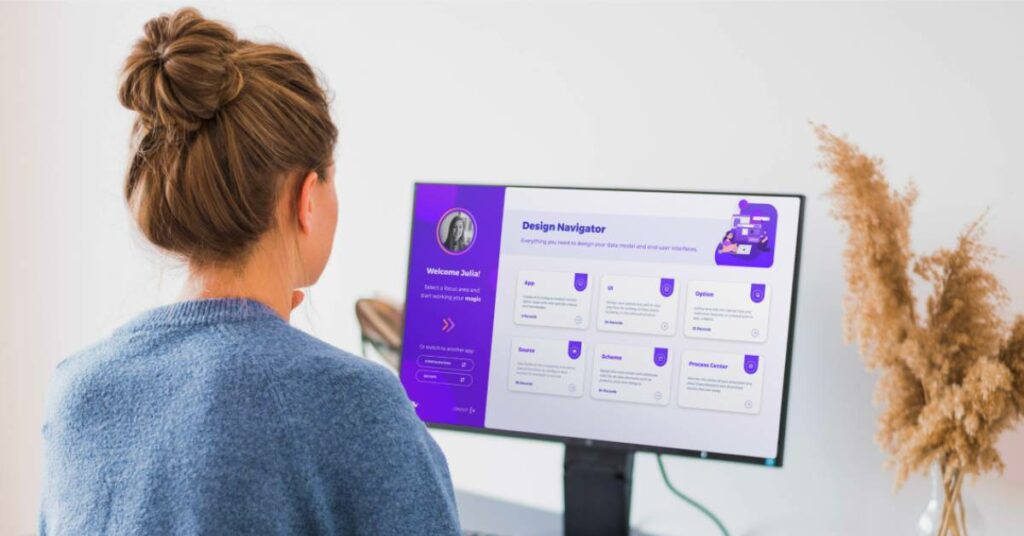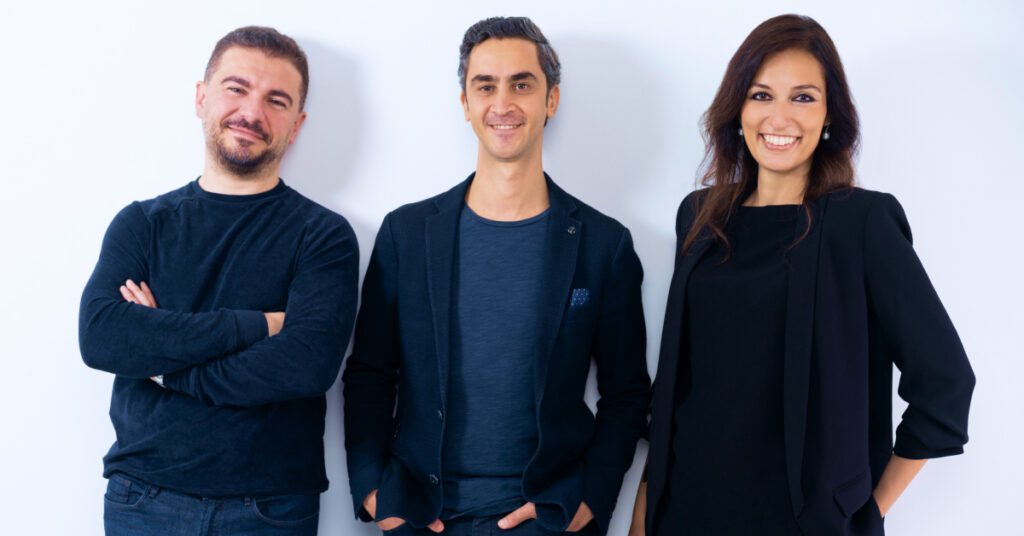Bussiness
How Rierino is powering Europe’s digital transformation with low-code
Last week marked four years since the WHO declared COVID-19 a pandemic. While the pandemic brought the world to a standstill, it will also be seen as the year of digital reckoning for businesses globally.
While businesses had been on a digital transformation journey for some time, the pandemic forced them to fast track and it was especially true for large enterprises where consumer expectations were at an all time high. However, it wasn’t easy since many businesses on a digital transformation journey faced common challenges such as legacy system bottlenecks, data silos, talent and bandwidth shortages, limiting the time and resources needed for innovation projects.
One solution to overcome these challenges came in the form of hyper-composable technology, with the mission to drive businesses away from monolithic architectures allowing for greater flexibility and ease of deployment. Rierino (pronounced rye-ree-noe), a Turkish startup founded in 2020, was already working on this idea for e-commerce and digital transformation but the pandemic forced them to accelerate those efforts.
“This [pandemic] led us to accelerate our efforts and create a platform that empowers enterprises to navigate the complexities of digital commerce and transformation with ease,” says Mine Bayrak Ozmen, who co-founded the startup with Berkin Ozmen and Utku Sarioz.
The global digital transformation market size was estimated at over $880B in 2023 and is expected to grow at a compound annual growth rate (CAGR) of 27.6 per cent from 2024 to 2030. Startups play a critical role in the digital transformation market and here’s how Rierino is helping European businesses.
A booming digital economy

While Europe is widely known for its booming digital and e-commerce business landscape, Ozmen calls it “blooming” primarily in terms of responsible and ethical innovation creating a thriving ecosystem with unique business models. According to Statista, the European market for e-commerce alone constitutes 540 million users.
Jan van der Veen, who joined Rierino in October last year as Head of Sales for the Benelux market, sees the market as dynamic and rapidly evolving with significant growth over the past decade. “The landscape is mature yet diverse, with a mix of multinational corporations, established retailers transitioning to online channels, as well as startups and SMEs,” he says.
For digital businesses in Europe, both Ozmen and Van der Veen see the current landscape as an opportunity to stand out and make a difference with their technology, especially by excelling at cross-border commerce. They argue that the market size and diversity paired with the robust digital infrastructure is the biggest strength of the European digital landscape while regulatory apparatus including data protection laws such as GDPR, consumer protection laws, VAT, and competition regulations can be challenging.
“There is a lot to navigate in terms of regulations as well as cross-border operational complexities,” says Ozmen. She adds, “I also think the methodical approach to innovation and continuous improvement is a true strength for the European market putting it at the forefront of technology advancements.”
While the sense of urgency for digital transformation has subsided post-pandemic, the momentum for digitalisation is still strong and Rierino sees many businesses continue to prioritise digital initiatives to further their competitive edge in this dynamic landscape.
Rapid adoption meets market expansion


Before starting Rierino, Ozmen held various in-house and consulting roles around strategy, marketing, and data science across EMEA in different industries. She also has a background in engineering and as CMO of Rierino, she advocates for human-centric design and inclusivity in technology. In four years, she says the biggest achievement of Rierino has been the rapid adoption of its solution across industries. “While our roots lie in e-commerce, we are thrilled that our platform is being used to build a variety of core business applications from community portals to passenger tracking,” she says with a smile.
Ozmen’s understanding of digital businesses is unlike others and she makes an astute observation about the business. She tells me that there is a need for a mind shift since Rierino is pushing the boundaries of low-code/no-code development into advanced backend use cases which has never been done before. “Because of this, we invest a lot of our time in conveying the unique capabilities and potential impact [to our customers],” she explains.
To further drive the adoption of its solution, Rierino raised $1.25M in seed funding from the Future Impact Fund in June last year. The funding was meant to fuel key areas of growth with primary investment happening in talent acquisition to expand its sales and marketing efforts.
Last year, Ozmen told Silicon Canals that they also wanted to use the funding to expand in Europe with Benelux as a key market. “There are a variety of reasons that make the Benelux market attractive as an entry point. In addition to its stable economy and high digital adoption, it is also very supportive of startups and innovation,” she explains.
For Rierino, Benelux is not only a strategic market that is at the heart of Europe, offering multi-country e-commerce operations at its core but also a market where they have ties from their previous experiences. They expanded in the Benelux market by hiring people with a strategic mindset aligning with Rierino’s culture and shared passion for innovation. One such talent is Van der Veen who brings over two decades of experience leading sales teams in various software companies. At Rierino, he is focusing on expanding its customer and partner base across solutions such as e-commerce, CMS, PIM, and other transformative technologies.
“We had crossed paths with Jan before and knew he would be a great fit for leading our sales efforts with his intimate knowledge of the market,” says Ozmen.
Challenges for European businesses


The dynamic nature of European e-commerce businesses is masking the cost-effective growth challenge. Van der Veen says scaling operations while managing overhead costs requires careful planning and strategic decision-making. Meeting evolving customer expectations is another key challenge with the competitive pressure of global players, Ozmen says, adding that European e-commerce businesses must differentiate themselves through “unique value propositions, innovative products, and exceptional customer experiences while balancing costs.”
“E-commerce businesses must invest in scalable infrastructure, efficient supply chain management, and targeted marketing strategies to drive sustainable growth without sacrificing profitability,” explains Van der Veen.
In addition to cost-effective growth, another challenge facing digital and e-commerce businesses in Europe and Benelux is software packaging. Many companies currently rely on a variety of specialised solutions to manage different aspects of their business and it becomes difficult to integrate these disparate systems cohesively and efficiently. “Larger enterprises especially face complexities associated with legacy systems and organisational silos. It makes maintaining such a diverse ecosystem more difficult, and data security and compliance all the more complex. We believe technologies need to be less of a black box and be more adaptive,” says Van der Veen.
Ozmen cites a Gartner study where 61 per cent of business buyers regretted their software purchase within 12 to 18 months due to hidden costs and compatibility issues. “Each new technology typically has its proprietary formats, protocols, and interfaces, making it difficult to achieve seamless communication and data exchange between systems. This lack of interoperability can result in inefficiencies, errors, and duplicated efforts, undermining the intended benefits of adopting best-of-breed solutions,” elaborates Ozmen.
With Rierino, they are on a mission to not only help businesses on a digital transformation to use low-code/no-code solutions but also put an end to the use of fragmented solutions.
Plays well with any technology
What’s the solution to this challenge? When I asked this question to Van der Veen, he was quick to point out that an ideal solution will play well with any technology. He adds that Rierino has built such a solution where its API-first architecture can seamlessly integrate with existing systems and third-party applications. He adds, “The low-code/no-code interface also transforms extensive coding requirements into basic configurations allowing teams to do more with less.”
Ozmen argues that businesses should not only look for cost-effective development but also see whether their chosen platform allows them to take the reins flexibly adapting to any new internal or external requirement. “Any customization, whether it’s for regulatory compliance or workflow optimization, can be easily configured through the intuitive admin interface,” she quips.
At the core of Rierino is a low-code microservice development solution that allows organisations to build anything, including sophisticated backend applications. This build-anything platform also gives access to high-impact commerce modules such as PIM, CMS, Personalizer, and Cart Manager, which can be combined to create a “complete headless e-commerce platform.”
In addition to those benefits, Rierino also provides pre-built integrations to Twilio, Cloudinary, SAP ERP, Microsoft Dynamics, Square, Adyen, and Stripe among others to support the transition. Rierino is also cloud-agnostic, meaning businesses can choose from a variety of cloud providers, including AWS, Microsoft Azure, Google Cloud, or even private cloud options. Ozmen calls this a popular feature among their clients since this approach allows Rierino to fully accommodate data privacy and sovereignty restrictions as well as budgetary considerations.
In comparison to traditional vendors helping e-commerce businesses in Europe, Rierino is different since it is both a business user and developer-friendly platform. “Through our mission-specific access profiles, business users can be masters of their domain and directly contribute to technology,” elaborates Van der Veen.
To help digital businesses, Ozmen says they are leveraging AI technologies to empower businesses in unlocking new levels of efficiency, creativity, and effectiveness. Rierino users can integrate real-time AI and ML into any customer interaction or workflow and benefit from its built-in MLOps feature to instantly deploy their own models or leverage self-service BI capabilities. The startup has also integrated generative AI (GenAI) to elevate user experience in three different ways. The first is providing content creation and management support to generate concise summaries and automatically translate and localise content for global audiences. The second is the GenAI-powered knowledge hub, which facilitates self-paced learning as an alternative to their 400+ pages of GitBook documentation.
The final implementation is “chat-code”, a government-backed R&D project that aims to position low-code as a universal intermediary between GenAI and software development.
Value for clients


Van der Veen says all of their efforts with product development and talent acquisition have come with the core goal of driving tangible value for clients. He says they have been successfully able to grow their network of trusted partners actively promoting and implementing Rierino’s solutions in the Benelux. “We have strategically engaged with a range of partners, including system integrators, consulting firms, and digital agencies that are a strong match to our technology vision,” he says.
These partnerships have now led to Rierino working with a diverse range of businesses across industries, helping them leverage its technology to achieve their e-commerce and digital transformation goals. He cites the example of one leading home and kitchen goods retailer with multiple brands and operations across more than 40 countries being able to improve their time-to-market for new products using centralised product and content orchestration.
All this transformation has come with greater attention to compliance and data privacy. Van der Veen tells me that businesses can deploy Rierino practically anywhere and be flexible with public/private cloud, client’s own Kubernetes cluster, on-premise or even bare metal deployments and be assured that data will never leave the EU or even the company’s own data centres.
Ozmen says they further strengthen data privacy by allowing businesses the freedom to authenticate and secure “their way.” “In addition to the robust security and authentication features we provide, our clients have the option to bring on board any IAM solution of their choice and have full control over network and application-level security configurations from day one,” she adds.
The real value for clients comes from Rierino’s focus on further enhancing its product offerings by incorporating feedback from existing customers and partners. Rierino is solving today’s challenges for e-commerce and digital businesses while also building solutions for the unique challenges and opportunities that will arise in the region in the future.










